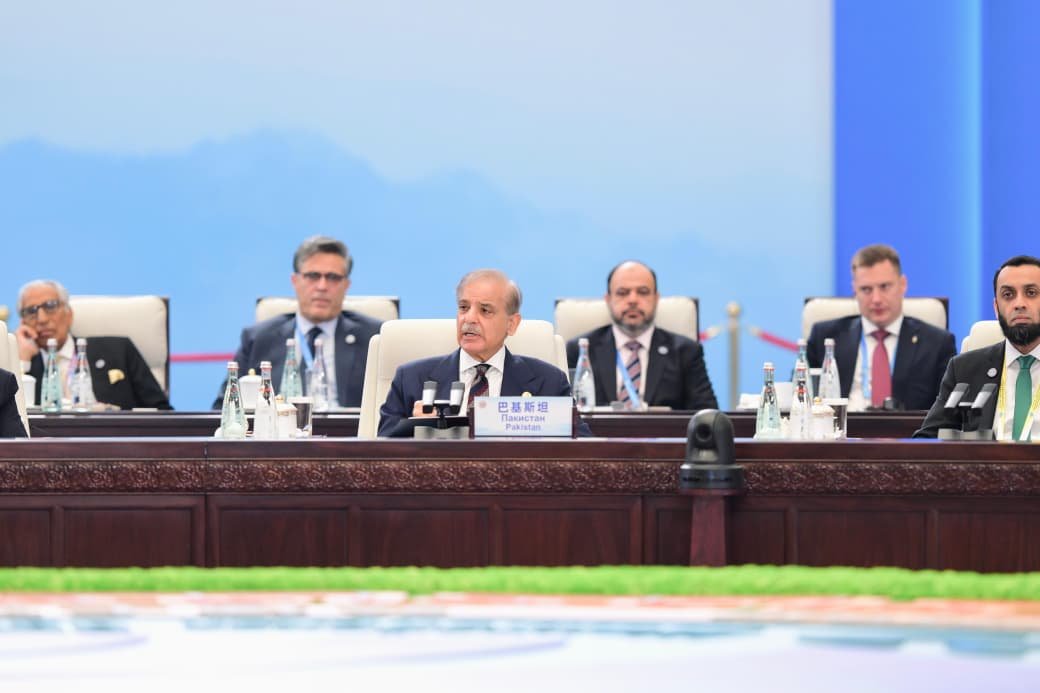Tianjin (TDI): Pakistan’s Prime Minister Shehbaz Sharif addressed the SCO Summit on Monday, in a speech that was a balance between what should and what shouldn’t be. Was his speech anything out of the ordinary? No. He mentioned everything that could be expected.
Indian Prime Minister, Narendra Modi, was also in attendance and so a considerable part of the address was a direct reference to India’s actions, without naming anyone directly. Interestingly, the Prime Minister of the South Asian country also brought up the trilateral meetings between Pakistan, China, and Afghanistan – meetings which have gradually progressed over the past few months.
A special mention of these meetings serves a few purposes: it positions Pakistan as a reliable partner whom China includes and relies on in a trilateral framework, it places Pakistan in a responsible place – a country working to help its problematic neighbor seek some stability, it also gives a message to India that Pakistan is not forgetful and careless regarding Afghanistan but is, instead, actively involved.
Read More: Xi Calls for Deeper Cooperation at SCO Summit in Tianjin
Another important policy posturing that PM Sharif did was to call for structural dialogue, for lasting peace in South Asia. The intent and message are clear: Kashmir remains a territorial conflict and peace can happen only if this conflict is negotiated, discussed – uninterrupted and in a structured dialogue format. At present, any bilateral dialogue on Kashmir between India and Pakistan is completely stalled. Instead, both went to a war as recently as May.
Simultaneously, the Prime Minister also mentioned some of the country’s non-negotiables: for example, respect for territory, sovereignty and treaties, multilateralism and diplomacy, no to terrorism.
All of these again fit the context of decades old rivalry and points of contention with India. India is the country which has violated Pakistan’s territory more than once, it is the country which has put bullying and realpolitik above bilateral and multilateral treaties, and it is the country which Pakistan has explicitly named over and over again for perpetuating terrorism on its land.
Read More: SCO, UN Chiefs Discuss Expanding Cooperation
While PM Sharif’s SCO address did not include a name but the stress on “state terrorism” and “foreign involvement” dropped the arrow where it was intended. A clear mention of Jaffer Express train attack, terrorism in Balochistan and Khyber Pakhtunkhwa was Pakistan’s way of getting sympathy and nod from SCO members, who are obliged by the Charter to care about terrorism in the region.
And last but not the least, Pakistan’s Prime Minister made it abundantly clear that uninterrupted access to due share of water is his country’s right, guarded by a treaty. While he adored multilateralism, he spoke against unilateral actions in parallel – and the message was again intended for India, who walked out of the Indus Waters Treaty in the event of May’s confrontation between the two.
With this address, Pakistan’s SCO diplomacy turns out to be mingled and overlapping with its short-term foreign policy following the brief war with India this year. It brought the same agenda points on the table, hoping to leverage SCO to endorse its stance.
Established in December 2008, The Diplomatic Insight is Pakistan’s premier diplomacy and foreign affairs magazine, available in both digital and print formats.



